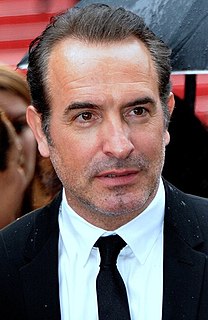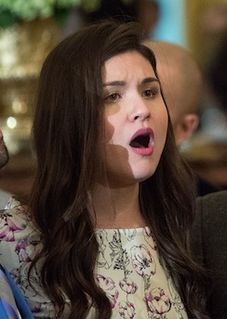A Quote by Michel Hazanavicius
The silent movie is an emotional cinema: it's sensory; the fact that you don't go through a text brings you back to a basic way of telling a story predicated on the feelings you have created.
Related Quotes
It's like fiction - the fact that somebody's telling you a story about people who didn't exist doesn't make the experience of the story any less real in your heart and mind. You go through heavy emotional responses to these stories, and wrestling is a similar thing - but it's happening in real space.
Cinema and theater - it's apples and oranges. You can't really beat movies. Yeah, when you're on an Oliver Stone set everybody brings their A game. Everybody brings their A game, from the top to the bottom and in between. In terms of theater you know there is no way to really duplicate that rush you get when you take an audience that is live and right there in front of you through the journey of a great play and you go through these emotions so that they can experience them without having to go through them themselves.
First of all, I had the desire for that format [silent movie], and then when I was talking to people, I felt that people needed justification. Why are you doing a silent movie? Is it just for your own pleasure? I felt it was not enough for them so I realized I have to choose the subject that will make things easier for them and to tell the story of a silent actor makes sense for doing a silent movie.
Remember that your thoughts are the primary cause of everything. So when you think a sustained thought it is immediately sent out into the Universe. That thought magnetically attaches itself to the like frequency, and then within seconds sends the reading of that frequency back to you through your feelings. Put another way, your feelings are communicated back to you from the Universe, telling you what frequency you are currently on. Your feelings are your frequency feedback mechanism!
Every story is flawed, every story is subject to change. Even after it is set down to print, between covers of a book, a story is not immune to alteration. People can go on telling it in their own way, remembering it the way they want. And in each telling the ending may change, or even the beginning. Inevitably, in some cases it will be worse, and in others it just might be better. A story, after all, does not only belong to the one who is telling it. It belongs, in equal measure, to the one who is listening.
I've been wanting for some time to find a way of stylizing cinema and trying to get closer to the emotional story I was telling and get rid of all the bumph that goes with it and allow the audience a more participatory experience. It was an attempt to do all of those things and to express the idea that all these people were just performing roles in their lives.
The inspiration is all in the script, in the text. So whatever it is, either it is a film or a book to be illustrated, anything. Everything you need to know is in the text. So the thing is trying to find right tone and voice, the right style, the right way of expressing the emotions in a story or in the location of the story, but it is all in the text.
Well, let’s start with the maxim that the best writing is understated, meaning it’s not full of flourishes and semaphores and tap dancing and vocabulary dumps that get in the way of the story you are telling. Once you accept that, what are you left with? You are left with the story you are telling.
The story you are telling is only as good as the information in it: things you elicit, or things you observe, that make a narrative come alive; things that support your point not just through assertion, but through example; quotes that don’t just convey information, but also personality.




































